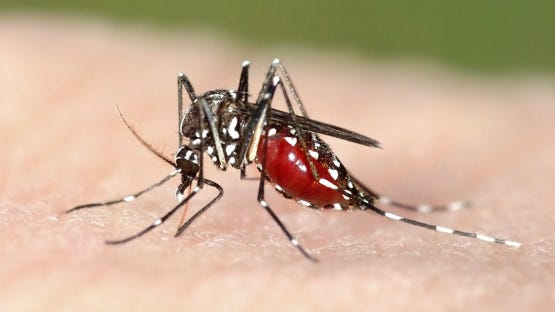Malaria
Written by Aditi Avunuri
Overview
Malaria is a deadly disease commonly carried around by female anopheles, a species of mosquitoes that transmit the parasite known to cause malaria. It is caused by plasmodium parasites, and there exist over 100 types capable of infecting various diverse species. When female anopheles bite into peoples’ skin, they transmit these parasites into their blood. Malaria is a febrile, life-threatening illness. For individuals who are not immune, the symptoms typically show up 10-15 days after they get bitten by the mosquito.
Symptoms
The initial symptoms, including a fever, headache, chills, and vomiting may be mild, making it quite difficult to identify as malaria. However, if it is not treated correctly within 24 hours, p. Falciparum, the deadliest species of plasmodium parasites, could advance to a very severe illness, often leading to death. Children who have severe malaria often experience at least one of the following symptoms: severe anemia or cerebral malaria. They can also experience respiratory distress relating to metabolic acidosis, which is the decreased bicarbonate concentration of the body fluids and the ph caused by either loss of bicarbonate from the body, or gathering of excess acids stronger than carbon acid. Additionally, adults can experience multi-organ failure. People who develop partial immunity can have asymptomatic infections, otherwise known as infections for diseases such as malaria, that have no symptoms to indicate it when someone is sick.
Treatment
Many scientists are attempting to create an effective vaccine for malaria, and the clinical trials for them are still ongoing. Since malaria is a complex organism with a complicated life cycle, and this parasite can escape your immune system by continuously changing its surface, it is difficult to develop a vaccine that works effectively against all of these varying surfaces. Furthermore, many scientists do not fully understand the immune responses that can protect individuals from malaria, but they continue to work towards finding a vaccine. One common antimalarial medication used to be chloroquine phosphate, a drug preferred for any parasites that are sensitive to chloroquine. Unfortunately, since many parasites developed the ability to resist it over time, it is no longer as effective. Another common medication is called artemisinin-based combination therapies, a combination of two or more drugs that treat malaria differently, and it is the preferred drug for chloroquine-resistant malaria.
References:
https://www.cdc.gov/malaria/about/index.html
https://www.cdc.gov/malaria/symptoms/index.html
https://www.mayoclinic.org/diseases-conditions/malaria/diagnosis-treatment/drc-20351190
https://www.cdc.gov/malaria/hcp/clinical-guidance/general-treatment.html
Written by Aditi Avunuri from MEDILOQUY


